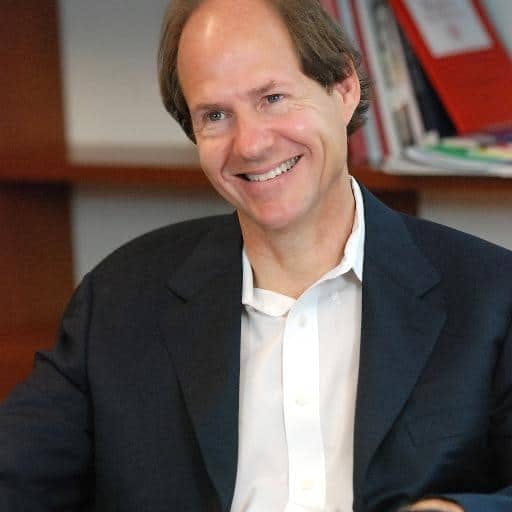Evidence And Values In Policy And Research
Brooke Struck, our research director, sits down with Nathan Collett, to discuss the nebulous intersection between evidence, facts and policy. We talk through:
- The complexities of selecting research methods
- The rise and fall of data science
- The reasons why technocracy is not the solution to all our problems
- Challenges at the root of democracy
- How to communicate between polarized sides of a debate
- The current political scene
Interview
Nathan: Thanks for sitting down with me. Can we start by introducing the way that people usually think about good policy?
Brooke: I think it is very widely held that policy ought to be this extremely rational process of simply taking the evidence, weighing it, seeing which direction it points in, and then just doing that thing. One of the obvious shortcomings of that kind of ideal is that while evidence can be really valuable in pointing us in the direction of how to achieve what we want, it doesn’t tell us what we ought to want.
Brooke: So the outcomes that we set for ourselves are not evidence-based or evidence-driven or anything like that, and they’re not supposed to be. The evidence only comes in once you have a motive. The first layer of kind of problematization around that ideal is that once you have an objective set, all you need to do is look at the evidence and it’ll tell you how best to get there. That first step of setting an objective, it’s not an evidence-relevant activity. Evidence can be used to identify instrumental means to reach a goal, but goal selection itself is an inherently normative, values-driven thing that the evidence just doesn’t drive.
Nathan: Right. And you can probably bring evidence in, to kind of shape the goal selection. If you’re looking at quality of life, there’s certain pieces of evidence or research that can kind of inform that evaluation, right?
Brooke: And this is where we start to get into a second layer of critique of that very, very kind of stringent, hyper-simplified evidence-based ideal of policy-making. That second thing is that even as we shape our values and our preferences, we keep in mind how effective things can be. Often, the narratives, not just between people, but even in the way that we conceptualize the outcomes that we want, are often strongly informed by the indicators we use.
Brooke: So for instance, when we talk about quality of life, often, the way that we think about quality of life will be strongly informed by the way that we assess it. I think everybody is pretty much on board with the idea that quality of life is something that should be promoted. What they don’t agree on is what makes a high-quality life. Even something as simple as quality versus quantity. Is an additional year at 10% less quality inherently more desirable than one less year, but all of the years between now and then being 10% higher quality? I think that there are big disagreements about that.
Nathan: How do you find answers to those problems without using evidence and research?
Brooke: That’s the thing. I don’t think that the harsh distinction between facts and values is one that we should get on board with. We should embrace this more complex kind of interactive relationship between facts and values, where even the way that we conceptualize our values will be informed by the types of facts, or evidence, that we are creating. And when I say creating, I don’t mean fabricating data. What I mean is we must choose a measurement protocol in order to create data. And in making those methodological choices, we’re doing just that. We have an active role to play in how the evidence is created.
Nathan: That reminds me of what I have read by Jürgen Habermas
Brooke: Oh, of course. Critical theory is all about this, right? There are some really interesting things going on right now in critical data theory and feminist data theory about how the datafication of the world is not kind of a neutral medium through which we view the world of experience. But actually, these media themselves actually have a perspective. They are a specific prism through which we view the world in which we live.
Nathan: I wonder, and TDL just published a recent article that mentions this sort of neoliberal idea that companies would just be better off if they could kind of cut through all their biases and hire the best people. Do you think that’s kind of an oversimplification where you’re not going to recognize the best people precisely because of the kind of structure in which we’re making those assessments about who’s valuable and who’s not?
Brooke: Yeah. I think that the oversimplification in that instance comes from the term “best”. Along which dimensions are certain people the best? If there is a very clear and unproblematic way to define that, then I agree that we can probably get this argument off the ground that all we need to do is de-bias the process and then we’re golden. But actually trying to define who the best candidate will be is an extremely difficult and fraught process. And in fact, I think that some of the most interesting things happen specifically when we get into productive arguments and productive disagreements about what “being the best” means in terms of hiring, in terms of fit, these kinds of things.
Nathan: Do you think evidence has to do with how we determine the best or is that fully something that’s normative and the evidence is selecting someone once we’ve decided what our goals are? How does an interaction between evidence and values play out in that kind of specific context?
Brooke: Here I think is a good opportunity to kind of pull open that complexity, that interactivity between norms and evidence. We might say, “Okay, well, I want to define ‘best’ along five dimensions, A, B, C, D, and E.” I can only do that by drawing from this kind of lexicon of measurable stuff that is out there. So, that lexicon, that armory of tools, which we can go and pick up in building our normative definition, is where the evidence is that informs values, that values are intimately connected to our ways of building evidence. Maybe it’s not evidence that builds up our normative values. It’s methodologies.
Nathan: So it’s the way that we collected our data that matters.
Brooke: That’s right. So, methodologies are maybe a place that we should focus more on this discussion, that methodologies are intimately connected to both values because we need some way to concretize our values and to our evidence because we need some way to collect our evidence. In the absence of methodology, we will really struggle to define our values or to concretize them, and we’ll be completely at a loss for how to collect the information to try to identify who best fits these normative descriptions, like who’s the best candidate for this job position.
Nathan: So, let’s go one level deeper. Where do we determine our methodologies from? I mean, I know you said values. But in a concrete sense, if you’re going to conduct a survey, a lot of this comes from past experience, right? To use the language of your paper, what are some incision points, or touchpoints, where one can actually intervene and change the process?
Brooke: One of the most valuable interventions in terms of identifying what evidence will be relevant for a problem, helping them to collect that evidence, helping them to process it both in kind of a very technical data science type of way but also in this much softer, decision-making institutional process kind of way as well. One of the things that’s most important in that work is keeping visibility on this whole kind of cascade or flow from the type of outcome that you want, which guides the type of evidence you identify as being relevant, and in turn, influences the type of methodology that you select to go to collect evidence. Finally, the analysis of what you collect leads to the decision-making process that is informed by that analysis.
Brooke: For me, I think the incision point is really about keeping visibility on that whole pipeline. That’s something that in a lot of contexts breaks down. So the functions that I just talked about in that whole cascade, institutionally are often divided into very siloed ecosystems within an organization. The person who’s responsible for creating the data probably doesn’t have great visibility on the institutional process that is going to be informed by that data later on down the line. I think in some ways data scientists have been in a privileged position to do that. Specifically because for a number of years data scientists kind of escaped or eluded very concrete descriptions of what the role was. They were more or less labeled as these unicorns or wizards who just did everything that touched on data within an institution or an organization.
Brooke: And in that respect, because they eluded that kind of description, because they eluded that pigeonholing, they were also allowed to have the freedom to walk all over the boundaries that constrained most people in an organization. In having a role that was allowed to just meander liberally across all of these boundaries, we created that kind of interconnection between the silos that allowed better decision making to take place. In that respect, good data scientists were good data scientists and really enabled organizations to make better decisions not just because of their technical mastery but also because of the unique role that institutions allowed them to occupy that normally they don’t allow anyone else to occupy, just like a transversal cut across the organization.
Nathan: Just kind of going against that sort of traditional Adam Smith sort of specification of labor thing.
Brooke: Exactly.
Nathan: Do you think the success of data scientists is a critique of that idea of specification of labor? Do you think that’s something that needs to be revised just when we look at organizational behavior and you have this CEO that’s really disconnected from the kind of nitty-gritty data collection sort of thing. Is that a problem given this sort of framework?
Brooke: Yeah, I think that it is. I think that it becomes a problem when our methodologies start to evolve very rapidly. Basically, as long as your methodologies are evolving very, very slowly, you don’t run into these challenges where a CEO, for instance, ends up with some kind of data report on their desk which might just be a one-page executive summary of insights. You don’t end up in a situation where a CEO can have that kind of product arrive on their desk and the entire process leading up to that product will be opaque.
Brooke: If the methodologies are the same ones we’ve been using for 50 years, the specialization of labor becomes less problematic. Because when the CEO ends up in their role, there may not be that much difference between the way that the process was happening when they had their hands kind of deep in the muck and the way that the process is happening now that they’re more hands-off in that kind of day-to-day execution.
Brooke: As methodologies start to evolve more rapidly, that type of system breaks down because the people who have taken this step back and are taking a wider strategic lens on what’s going on cease to have a good transparent visibility on what the day-to-day operation looks like at the ground level.
Nathan: One of my colleagues in computer science talked about this in the context of his field. Basically, if you don’t move up from being a coder within 5 or 10 years after getting your degree, your skills are obsolete, so you have to move into management before you kind of just stop being useful to the company. I think that’s a total example of the disconnect between the people running the show and the people on the ground using new tools that superiors don’t know how to use.
Behavioral Science, Democratized
We make 35,000 decisions each day, often in environments that aren’t conducive to making sound choices.
At TDL, we work with organizations in the public and private sectors—from new startups, to governments, to established players like the Gates Foundation—to debias decision-making and create better outcomes for everyone.
The AI Governance Challenge
Brooke: Yeah, and this raises the point that in some ways is mind-blowing and cool, but in another way kind of seems bent out, which is that the size of an organization can be adaptive or maladaptive to a certain circumstance. Larger organizations, because they tend to ossify and silo are better adapted to situations of slow evolution because the siloization is less of a problem when the evolution is slow.
Brooke: That’s why smaller organizations tend to be better at innovation because the siloization hasn’t set in yet, and so you can maintain that kind of visibility that is very adaptive for situations of rapid evolution.
Nathan: Earlier, you were talking about data scientists and their unique opportunity to have had their hands in every kind of pocket of their organizations. You were talking in the past tense. Was that intentional? Why?
Brooke: My sense is that a bit of the sheen has come off of data science now. People have seen it enough to start to understand a bit more concretely what the skillset is, what these people are capable of and this kind of thing. So, you start to see job descriptions that are more detailed and more specified as people start to understand what the role can and cannot entail. There’s something of this sheen or mystique of the novel that is lost once you start to understand how the thing works. The thing that makes magic magical is that you don’t understand. For anyone out there who enjoys magic and sleights of hand and this kind of thing, never, never, never ask how it’s done because it’ll stop being fun.
Nathan: That’s a really interesting segue. One of the topics that you have written about has to do with myth and the kind of role that myth plays both in ancient religion and also in modern political circumstances. I want to make a shift towards a discussion of rhetoric and policy and the kind of role that evidence plays in building policy. Make that link for us.
Brooke: Going back to the complexity that we were talking about before, the complex relationship between evidence and values, which passes through this conduit of methodology, the rhetoric that we see right now around the push for evidence-based decision making suggests that decision making currently is not or is insufficiently driven by evidence, which is immediately politicized. Decisions right now are not made based on no evidence. They are made based on evidence that certain groups of people critique because of the methodology through which it is gathered. Qualitative evidence is still evidence. As a politician, going out and speaking to the members of your community that you represent, going out and speaking to your constituents and hearing their stories, that is evidence gathering.
Brooke: Essentially, when we say we want decisions to be based on evidence, what we’re implicitly claiming is that going out and talking to constituents is not evidence, that that’s not legitimate, that it’s not important. So what we’re doing is devaluing certain kinds of evidence in favor of others. We need to be aware of that. We need to be aware of the fact that when we try to make these hard cuts between this is evidence and this is not, what we’re doing is we’re making a political statement about what kinds of methodologies and whose types of perspectives are allowed to count.
Nathan: What are some examples where that’s been effective lately?
Brooke: One of my favorite examples, it’s not a particularly recent one, but it’s one that for me is very evocative. The US Supreme Court made a ruling at one point about abortion saying that they needed to take an evidence-based approach. The challenge there is that there are broadly two perspectives that are in tension with each other when it comes to discussions about abortion. One is about health and well-being and the other is about the sanctity of life. More or less, the health and well-being question is the one that we use science to get traction on. The sanctity of life question is just not a scientific question.
Nathan: How so?
Brooke: Whether it is right or whether it is wrong to end a life is not a scientific question. There’s no experiment that you could go out and run that would gather evidence, analyze it, and come to the conclusion that it is wrong to do X or Y because that’s just not the kind of conclusion that empirical evidence leads to.
Brooke: What we end up with in this Supreme Court situation is the discourse about needing to take an evidence-based approach, which inherently favors the side of the discussion that is looking at evidence because their concern is an empirical concern. Whereas the other side of the discussion where the concern is more about religion, about values, about our sense of identity, the empirical elements of that are not really in question. I mean, there are some empirical discussions that happen at the margins there, around trying to identify as of which stage…
Nathan: A heartbeat and what not…
Brooke: Exactly. Trying to lay down some empirical moorings for things like when does life begin. But really, those questions, in my interpretation of the argument, are not the foreground. They’re not really what’s at the heart of the position of people who are advocating against abortion.
Nathan: It strikes me as kind of a post hoc way of coming at it. You have your opinions and you have your norms that are set through religion, and culture, and tradition, and whatnot. Then, you’re kind of stepping up to play at that technocratic, evidence level of the discussion.
Brooke: Yeah, there is something that goes on there. And I mean, not all of that is disingenuous, right? I mean, I think that there are people who are genuinely interested in this question of at what moment does life begin because they feel that those explanations help them to kind of deepen their understanding of their own values, their own views on the sanctity of life. I don’t think that that has to be a just disingenuous pursuit. But, certainly, the way that those kinds of discourses are framed, like this Supreme Court decision, explicitly making reference to wanting to take an evidence-based process, that’s kind of the covert way that certain political perspectives get smuggled into discussions while trying to do it in this apparently even-handed way that says, “We just want to look at the evidence?”
Nathan: So then how do we look at something like public opinion as something that’s been devalued in terms of a form of evidence. We have an election coming up in the states in a couple months. Is that something that should be reintegrated? How do you choose what evidence to take up in a climate like this?
Brooke: I’d like to push the question one step further and say we should be considering all kinds of evidence. The difficult, and interesting, and fun stuff happens when we ask, “How do these different lines of evidence fit together?” It’s not about your evidence versus my evidence. That, I think, leads us into all kinds of problems. It’s certainly not the type of approach that’s going to help us out of the current situation of polarization that we find ourselves in. But, trying to understand how facts and values fit together, even as I openly criticize that distinction, how these different lines of evidence fit together is the really problematic and difficult question. The opposition of “do I use this evidence” or “do I not,” is kind of a symptom of not knowing how to fit them together. That if I don’t know how to fit them together, the easiest response is to say, “Well, I choose one and I put the other aside” because I know how to work with one thing. If two things are incommensurable, then I just choose the one thing I’m going to work with and I don’t go through the hard work of figuring out how they fit together.
Nathan: Would you disagree with the statement that kind of all evidence is political or at least all evidence comes from somewhere?
Brooke: I definitely support the view that all evidence comes from somewhere. Somewhere, methodological decisions need to be made about how we collect evidence and how we process it to reach a conclusion.
Nathan: It’s a pretty serious challenge to an objective world view.
Brooke: Absolutely.
Nathan: How do we come together with people that are selecting evidence in a very different way from us? If objectivity is something that is constructed, where is the common ground? And maybe that’s a big question about how you can go from facts to norms and vice versa as wel actuallyl. But in terms of good governance or a good society, I mean, how do you get there?
Brooke: When I hear you ask that question, if I kind of distill the essence of that, abstract away from some of the concrete details, what you’re asking me is how do we find the right process or what is the right process to use. In such situations, my approach is always to kind of throw the boom over to the other side and tack into the wind and say, “Well, what’s the problem that we’re looking to solve?”
Brooke: I’m not sure if we agree on what the problem is that we’re looking to solve. I think that some people really do look at this situation and say, “The problem is that we’re not paying attention. We’re not paying enough attention to science.” I think a lot of the people who hold that view and a lot of the people who are of that position are themselves scientists who are rolling out this extremely self-serving argument that, essentially, they want to have a more important seat at the table, whether they recognize it or not. And I think it’s hilarious that often those scientists are the same ones who say that science is completely apolitical and that they don’t want to be politically involved. But at the same time, they are covertly and potentially even unawaredly advocating for their own political power.
Nathan: So there is another question here about the role of expertise. So, sure, science is never apolitical and we make all these choices prior to kind of delivering our kind of objective conclusions that are constructed through the scientific process. But, what about the difference between something that has been conducted in a randomly controlled trial versus something that is a hoax? Or is a myth, is something that has been kind of culturally assimilated in a way that’s maybe not as strict.
Brooke: Let’s start out by identifying that what you’re putting forward here is the circle that we have been looking to square since at least the time of Aristotle, almost certainly earlier. This is one of the fundamental tensions at the heart of democracy. How do we balance these two incommensurable measures of the quality of all people and the expertise of some, which is inherently non-evil?”
Brooke: I’m going to bring that up as a little precursor to whatever answer I’m going to offer just to manage expectations that there isn’t a super satisfying answer to this. But also, I’m going to defend myself that there are some pretty smart people who have come before me who have also not had super satisfying answers to this. I think my unsatisfying answer will go along the following lines. We probably should never get too comfortable with whatever balance we strike between the quality and expertise, that there are important elements from both of those kinds of anchor points that we need to conserve, and we’ll need them in different measures in different times.
Brooke: The most important thing that we can do is remain vigilant when we feel that we’ve reached a situation of imbalance. I think that the shift, that the rise of populism in Europe, in North America, and elsewhere, is a very clear indicator to me that we have lost a comfortable equilibrium. Populism arises when large swaths of the, let’s say, normal society feel that they have been left out of their own democracy, that they don’t have a voice, that they don’t have opportunities to build a good life, that the interests that drive the political discourse, and political decision making and economic decision making do not protect their interests, do not respect their importance. That is the space in which populism arises or the space in which populism can arise where the populace stands up and says, “I’m one of you, the real people. And we together need to take back the economy, take back the political scene, take back whatever center of power that we feel has been ripped away from us.”
Nathan: This is really interesting. While you were talking about that, I was thinking about two different ways that you could get that marginalized group. You can have one that’s actually been oppressed within their society and has no voice to say, “No, we are here as well.” Then, there’s the “let’s take it back.” There’s the “what we once had.” How much does it matter which group you’re appealing to? Does it matter that people feel a sense of entitlement or just want equality?
Brooke: Let me draw a distinction between just kind of entitlement in a material sense and entitlement in a more political psychological sense. Even in a population where the economy is struggling, where people are in a situation of subsistence living, people can still feel a sense of inclusion. They can feel that their political cast is kind of doing as good a job as is possible under the circumstances and that they really do have the best interest of the people in mind.
Brooke: I think that’s a good illustration of the division that I’m trying to draw here between material entitlement and kind of symbolic entitlement that the people who are scratching out this subsistence living may be totally comfortable with very little feeling of material entitlement. They don’t say, “I deserve better. I should have more. I should be getting paid more money. I should have a bigger house. It shouldn’t be so difficult for me to ensure that there’s a square meal in front of every one of my family members three times a day.”
Brooke: Even in circumstances of material challenge, we can still feel this kind of symbolic Identitarian entitlement that I have a right from my perspective to be heard for my rights, to be respected, for my dignity to be recognized in governance of the place where I live. And that, in many instances, can be enough.
Brooke: The flip side can also happen. When I say it can also happen, what I mean is it is also happening, that there are large swaths of society in North America and in Europe who actually are having their material entitlements quite, quite met. And it’s the symbolic breakdown that is driving them towards these feelings of disenfranchisement. And that’s something that I think we didn’t really have our eye on enough during the 20th century, that a lot of the way that we’ve told narratives about the historical arch from the First World War to the Second World War, a lot of that has focused on the material pressures that were exerted on Germany through the Treaty of Versailles and this completely unsustainable economic situation being driven by the reparation payments that were demanded by that treaty and this kind of thing and that that material breakdown is what led to the possibility for Nazism to rise.
Brooke: The lesson that we’ve taken away from that is we need to assure a kind of minimum material comfort for people, otherwise they will take these kinds of extremist positions. What we’re learning now is that actually just maintaining that kind of minimum material comfort is not enough. There needs to be a minimum level of kind of recognition, a sense of dignity, a sense of my voice being heard, my perspective being validated and included that also needs to be protected. Because if there’s a breakdown on that side of the ledger, it also opens up a space for people to take very seriously some quite extreme views.
Nathan: I think this is a pretty big realization for people pursuing social justice. But, I think we have a problem where if the most disadvantaged members of society are in that kind of cast where their material entitlement maybe isn’t met but that’s not necessarily a problem, it’s going to be a lot harder to advocate for their advancement compared the conservative argument of, no, things should go back to how they were because my psychological needs aren’t being met anymore. And so that it’s so much harder to drive progress with people that don’t expect more than they already have right now compared to kind of clawing back at something that feels like it once was.
Brooke: The article that I wrote that kind of sparked this whole conversation really picks up from an interesting piece of research that was conducted in the last couple of years looking at the determinants of who shifted their vote from Democrat in 2012 to Republican in 2016. One of the major narratives that came out of the 2016 election was this narrative around people being economically left behind. The Rust Belt, all of these jobs have gone away. They’ve either been automated or they’ve been shipped overseas. And people are feeling that the economy has left them behind and that they can no longer provide for their families and these kinds of things.
Brooke: That piece of research that I built my article on in some important ways actually demonstrated something quite different, that it wasn’t a sense of being left behind economically that seems to be the strong predictor of shifting from Democrat in 2012 to Republican in 2016. Rather, the strongest drivers that they found were a sense of identity being left behind, namely a worry about the role of the United States on the world stage, that people were concerned that-
Nathan: Which I might add is a, I don’t like using the word psychological, but can only be a psychological assessment. Most voters just aren’t foreign policy experts, right?
Brooke: Right.
Nathan: It’s a feeling that’s been represented and that’s been transmitted to them somehow. So, that’s an excellent example of where all data comes from somewhere. And in this case, it’s really coming from somewhere unknown.
Brooke: So, I’m going to push back against this idea that it’s a psychological construct, that it’s a sense of identity. It’s a narrative about who we are. It’s as much about figuring out what evidence is relevant as about the interpretation of that evidence. There are some very real metrics according to which the United States is no longer leading the world. Economic growth is clearly one of them. The meteoric rise of China in the last 15 years, let’s say, that’s just something that the United States has not kept up with. And I don’t feel that that’s a problematic or contentious statement to make.
Nathan: No, it’s right.
Brooke: Except that I’ve kind of smuggled in which indicator I take to be the important one, right?
Nathan: Yes.
Brooke: Not that economic growth actually is for me personally the important indicator, but I think it’s one that has been bandied about as kind of like, “Well, look at this way in which America is stumbling. We’re not leading the world anymore.” Those kinds of narratives, those kinds of data narratives, are not hard to find. If you’re looking for a line of evidence according to which some country, be it the United States or any other is or is not leading the world, you can go out and find one. You just need to go and be as unscrupulous as you need to be in order to go find an indicator, but you can find it.
Brooke: The thing that I think is more challenging is that this idea that America will be number one and that that’s kind of its manifest destiny is one that hasn’t been kind of critically examined very much.
Brooke: Along which dimensions do we expect America to be first in the world? And if the answer is all of them, I’m going to push back pretty hard and say, “But what about the dimensions that we think are bad ones?” What about deforestation? Do we want America to be number one in deforestation in the world? Probably not. So the fact that I can pull out these examples that are trivial and obviously ones that we think are kind of bad examples means that there is a line somewhere. And I hope that that highlights the value of getting into discussions of where we think that line should be. There are going to be cases that are obviously ones where any country wants to be leading and ones where any country doesn’t want to be leading. All the interesting stuff happens in the gray area where we decide whether something is a priority for us or not.
Brooke: Economic growth is something that is so widely used internationally that it goes down as smooth as a spoonful of sugar. But is that something that we as a society feel is unproblematic? If we had to trade it off against something else, would we? Would we make a trade off for quality of life, acknowledging that it is a fraught thing to measure? Would we choose economic growth over quality of life? I’ve been nothing short of astounded to hear some voices in the United States saying, “If COVID’s coming to get me and I’m old, I would rather die than to have the economy shut down to protect the health of the population of this country. That to me is a pretty shocking thing.
Nathan: It is interesting to me that those arguments for “I would die before I let our economy stumble,” often when pressed, they fall back on, “Oh, well, if the economy stumbles, more people are going to suffer. And ultimately, we’re going to be better off if we don’t shut down.” I think we touched earlier on the kind of idea of, during the abortion discussion, how evidence is brought in ad hoc to kind of prop up something that’s not a place where evidence has a role. That strikes me as one of these two where the value judgment’s been made. They’ve made that prioritization, and they put quality of life down, and now they’re sort of kind of coming back to it.
Brooke: We need to be more kind of open, transparent, and critical about what evidence we actually care about. We have such a habit of just throwing out statistics, it’s my statistic against yours, that what we never do is sit down and have a hard discussion about, “Why do I care about this statistic compared to another?” The fact that we don’t have those discussions often leads us to these circumstances where we have to choose between listening to somebody and not listening to them based on whether their preferred statistic either agrees with or disagrees with my preferred statistic, whether we’re pointing in the direction of the same action that we’re advocating for.
Brooke: If we do the hard work, dig into the nitty-gritty of “why would I care about this statistic versus some other,” two things can happen. First of all, we can engage more meaningfully with people than we currently do, which is this very polarized binary way of either we agree or we don’t agree. There’s much more nuance once we get into the nitty-gritty of why we should care about various things.
Brooke: The other is that through that exploration in itself, we can actually come up with solutions that we hadn’t identified before because we hadn’t taken the time to kind of unpack it and figure out what we care about. Those kinds of explorations are really, really rich. There’s a lot of space for creativity in there to come up with not just a realization about which statistics we care about, and why, and how to fit them together, but also what solutions might be available to push us forward on the dimensions that we care about the most.
Nathan: That’s a wonderful place to stop. Thank you for taking the time to discuss this with me. It has been really insightful and I look forward to the next time.
About the Authors
Dr. Brooke Struck
Dr. Brooke Struck is the Research Director at The Decision Lab. He is an internationally recognized voice in applied behavioural science, representing TDL’s work in outlets such as Forbes, Vox, Huffington Post and Bloomberg, as well as Canadian venues such as the Globe & Mail, CBC and Global Media. Dr. Struck hosts TDL’s podcast “The Decision Corner” and speaks regularly to practicing professionals in industries from finance to health & wellbeing to tech & AI.
Nathan Collett
Nathan Collett studies decision-making and philosophy at McGill University. Experiences that inform his interdisciplinary mindset include a fellowship in the Research Group on Constitutional Studies, research at the Montreal Neurological Institute, a Harvard University architecture program, a fascination with modern physics, and several years as a technical director, program coordinator, and counselor at a youth-run summer camp on Gabriola Island. An upcoming academic project will focus on the political and philosophical consequences of emerging findings in behavioral science. He grew up in British Columbia, spending roughly equal time reading and exploring the outdoors, which ensured a lasting appreciation for nature. He prioritizes creativity, inclusion, sustainability, and integrity in all of his work.






